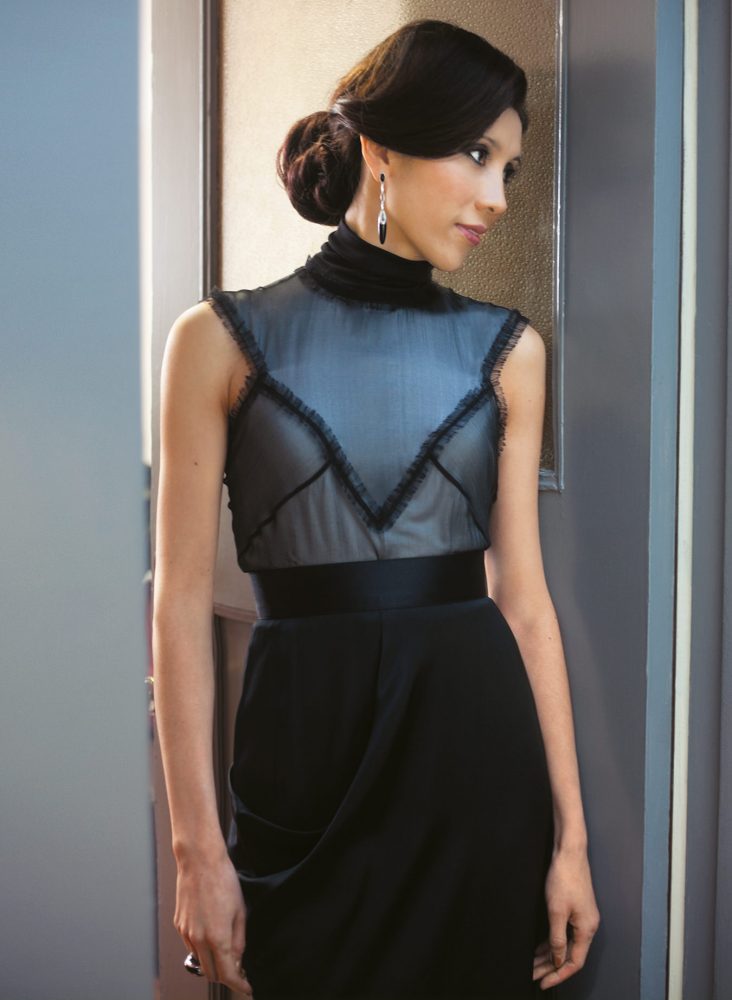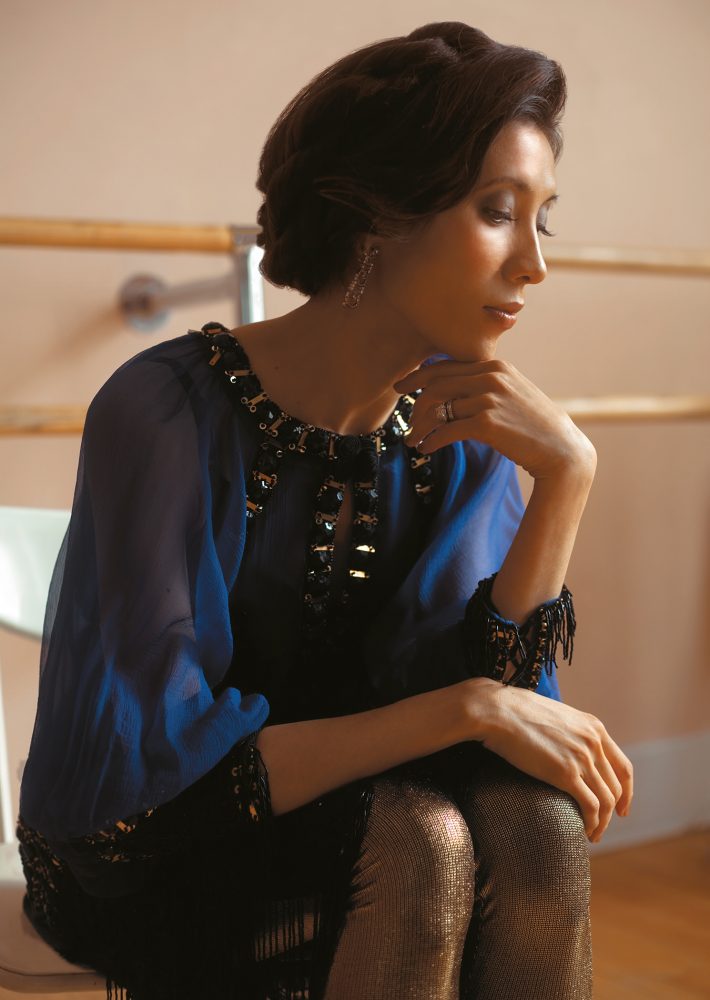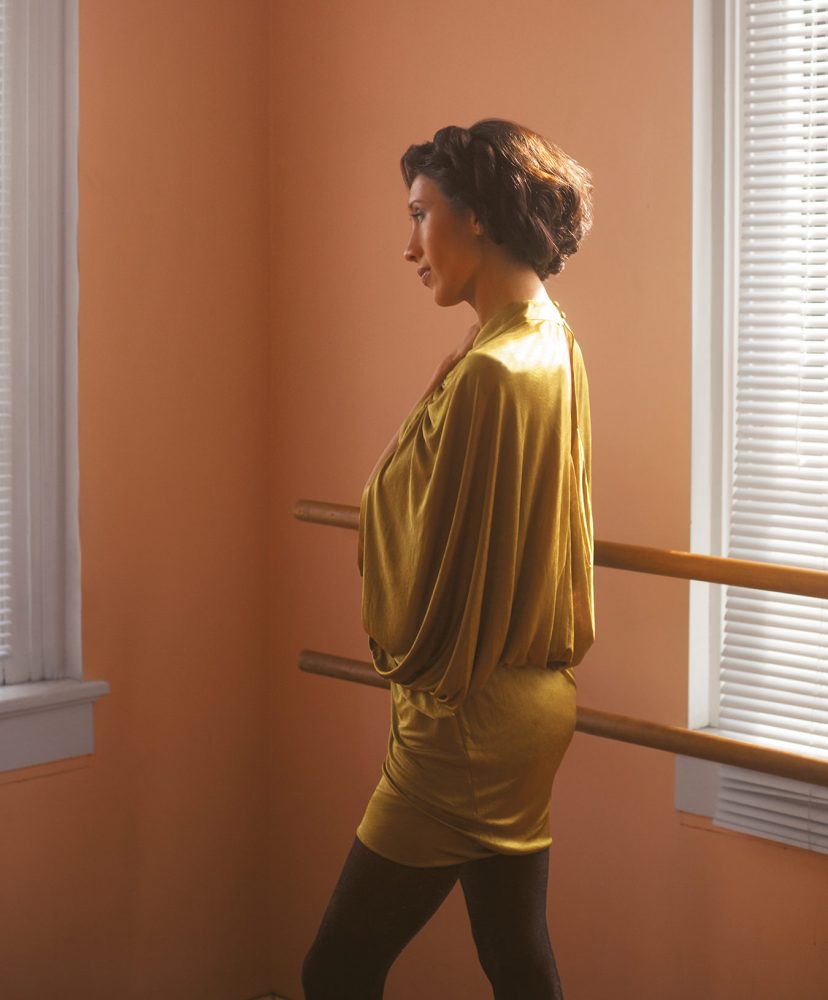When Chan Hon Goh enters a room, she is the walking—no, the floating definition of grace and elegance. The three decades of practice and performance as a ballerina and eventually as prima ballerina at the National Ballet of Canada brought out what was already there: a fluid physical movement that propels her across a restaurant floor or a grand theatre stage as if she were not expending any effort at all. The secret is, though, that the hard work remains invisible; the hard work, which is the bedrock of her considerable accomplishments. This work ethic is also the reason to expect great things as she transitions from her role as performer to her role as mentor, teacher, and director of Vancouver’s Goh Ballet Academy.
The accomplishments are many, and widespread, including guest appearances with the Royal Danish Ballet, Suzanne Farrell Ballet, Washington Ballet, National Ballet of China, and at the Gala of International Ballet Stars (USA) and the International Ballet Gala (Australia). That is the short list. She entered the National Ballet of Canada in 1988, was appointed second soloist in 1990, and first soloist in 1992. She became a principal dancer in 1994, only six years after joining the National.
Leading roles, again a short list, include such ballet notables as Afternoon of a Faun, The Sleeping Beauty, Madame Butterfly, The Firebird, Romeo and Juliet, Swan Lake, The Nutcracker, and Giselle (her final dance with the National Ballet in May of 2009). There were more adventurous productions as well, several of which were choreographed by former National Ballet director James Kudelka, who was from the first instance a strong supporter of Chan. Some of those works include The Actress, Cruel World and Desir.
Chan has since moved back to Vancouver. “Personally, I have always called Vancouver home. Still, moving back was a very difficult decision. There are still many projects in Toronto, various choreographers and artists there that I have formed remarkable friendships with. After all, I spent 21 years at the National, and it will always figure prominently in my life.” The decision, difficult as it was, still was made, and Chan’s new life includes “all these new doors to open, ideas to explore, and a re-channeling of my energy.” That energy is prodigious, and so the challenge needs be also. That is where her role as director of the Goh Ballet Academy comes in.
“I believe each person’s time will come. So as I teach and mentor more, it is about making them shine. Each dancer is an individual.”
The Goh Ballet was founded by Chan’s parents, Choo Chiat Goh and Lin Yee Goh. They moved to Vancouver from China in 1976, at the height of the cultural upheaval Chairman Mao was adjudicating at the time. They were both principal dancers at the National Ballet of China, serious artists each. Chan was eight years old.
Her father, famously, did not earmark her for success as a dancer, but thought her talents lay more in music performance. Her innate musicality is one thing, but her ballet skills were hard-won, and instead it took a visit to the Academy by ballet legend Anton Dolin to truly open the door to her future. He picked her out of a group of dancers, noting she was the one showing the most promise, something that her surprised father almost reluctantly acknowledged. Determination, hard work, and natural ability seem to have found an exquisite balance in Chan Hon Goh.
She pauses over her latte, and says, “Dancing is an educational process, certainly. I am coming in to this fresh, but with the dancer’s point of view always foremost in my mind.” This is a purposeful mission for her. “I believe each person’s time will come. So as I teach and mentor more, it is about making them shine. Each dancer is an individual.”
Her stage career means she knows the process intimately. “You grow up dancing various parts, and eventually you grow into lead roles. The message is always to be inspired by greatness. It is a huge undertaking. For me, it has been a gift and a privilege.” She pauses again, and smiles brightly. “How many people can say ‘I dance for a living’?” It’s this success, though, that informs her every move these days. “Now, being on the other side of it, I have a different focus. I find that I treasure even more the commitment and passion of the young dancers at the Academy. The question for me is, ‘How do I help them on their path to achieve their dreams?’”
The dream is something she understands. “Classical ballet always had the allure for me. Tchaikovsky, the grandeur of it. As a dancer, I am an instrument of what the music is saying. My task is to personify the music. It is a vocabulary you work with.” The classics hold their special place, but, Chan says, “You must expose young dancers to all the different styles. The art form cannot progress without innovation. It is more important than ever to push the boundaries, with new voices. It helps dancers grow as artists.” She warms easily to the discussion, her own knowledge and passion for it palpable.
“In this new role, I now see how much goes on behind the scenes. Before, my communication was onstage. Now, it is in the real world, and I cannot just go into the studio to practice.”
The Goh Ballet’s new production of The Nutcracker is in some ways the tip of the iceberg. Two of the National Ballet’s strongest principal dancers, Sonia Rodrigues and Piotr Stanczyk, will dance the lead roles, thanks to the National’s director and Chan’s personal friend, Karen Kain. “It is something completely new to this community,” Chan enthuses. “Sonia and Piotr are superb talents, and Karen kindly made them available to us.” To observe the pair in rehearsal, moving through the choreography in a small practice space at the Academy, is to observe up close the intricacy of detail, and the sheer stamina, all blended with athletic grace and artistic interpretation. They glide around the room, but take the piece in small portions, working through such things as how the fingers of the left hand separate and point at the end of a specific pattern.
A few weeks earlier, young, aspiring dancers worked thorough an arduous audition process. “It is not always the case that the best dancer at the audition is the best at the end. Sometimes development is the key.” Another pause, then, “We analyze the movements. The better the training at an early age, the better the dancer. That is where I am now putting my energy. In this new role, I now see how much goes on behind the scenes. Before, my communication was onstage. Now, it is in the real world, and I cannot just go into the studio to practice. There are so many things I cannot control. I am learning to delegate, and to be clear.” At the core of this is still the burning passion to bring ballet to audiences, at an ever-higher level. And, to train dancers in the art of how to enthrall those audiences.
Karen Kain has more than a few words of wisdom for Chan upon her departure from the National Ballet. “Now, instead of practising, you will feel your tension as tension.” Chan smiles, and says, “I of course did not know how true that was until now.” But there is another nugget of insightful wisdom Karen Kain shared with Chan Hon Goh, and which keeps her passion riding high: “Karen said to me, one day near the end, that ‘you must always remember, you are still an artist.’” Whether she is observing auditions, or enjoying a rehearsal with her two stars, whether she is on the phone raising awareness of the upcoming season, or showing a 12-year old dreamer how to hold a position with poise, it seems clear Chan is not likely to ever be anything but an artist, working hard at it every day.
Art Direction: Mark Reynolds.
Photography Assistance: Sonny Steele.
Fashion Direction: Craig David Long.
Styling: Leila Bani for THEY Representation.
Styling Assistance: Leanne Trigg.
Hair: Marty Boechler for JudyInc.com, using TRESemmé Hair Care.
Makeup: Tamar Ouziel for JudyInc.com.
Jewellery: Provided by Montecristo Jewellers.











